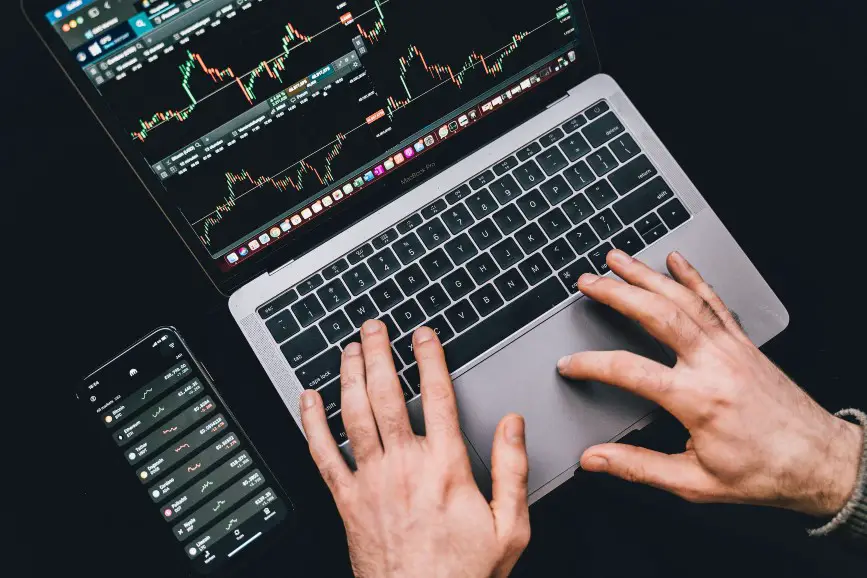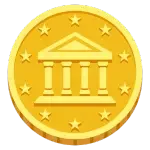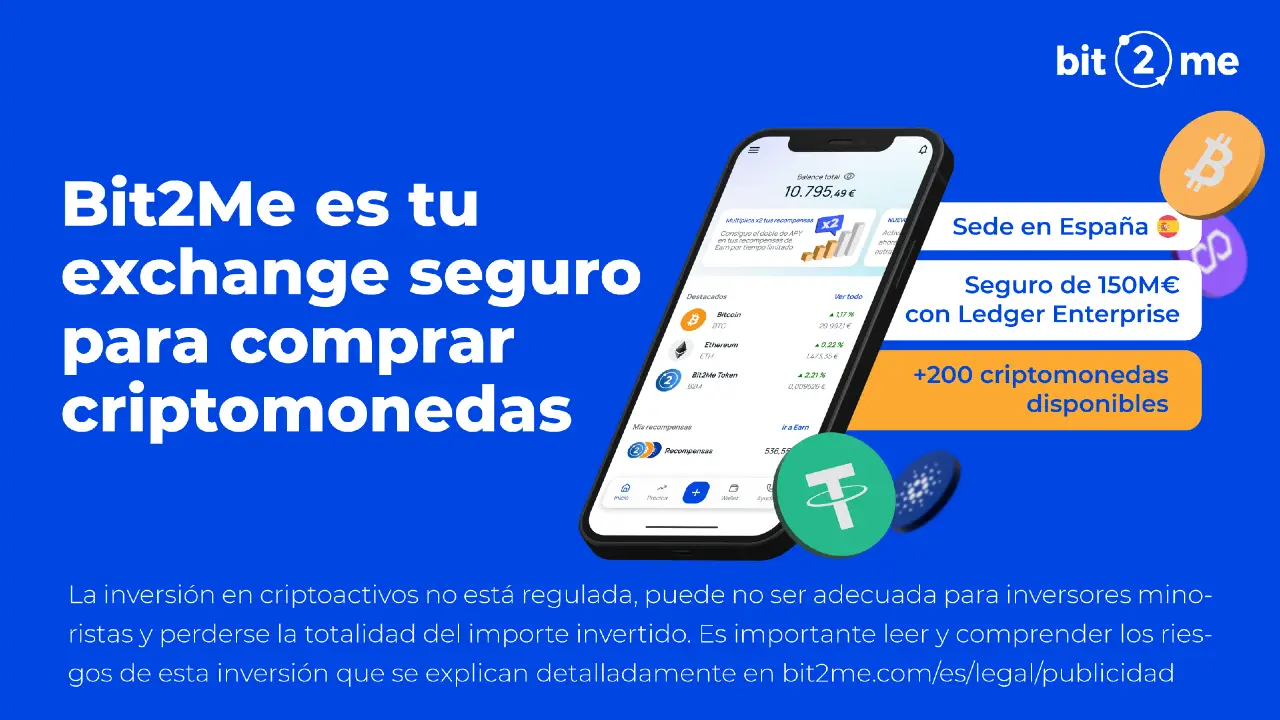Cryptocurrency App Development Guide

✍️ 22 October, 2022 - 11:28 👤 Editor: Jakub Motyka
- Developing cryptocurrency-related apps and products has proven to be a lucrative and promising area.
- In this guide you will find everything you need to know about the cryptocurrency app development.
- The latest news about cryptos, in our Telegram channel.
With the world’s first ever crypto console and the crypto arena being revamped, it’s truly an exciting time for crypto enthusiasts. What makes things even more thrilling is the growth in both experienced traders and newcomers. There’s no doubt that cryptocurrency has finally come into common use!
That’s why developing cryptocurrency-related apps and products has proven to be a lucrative and promising area within the financial technology industry.
If you’re looking to invest in creating a crypto app for a large consumer base but don’t know where to start, you’ve come to the right place! Below, we’ll discuss what a cryptocurrency app is, the types of cryptocurrency apps you can create, and everything you’ll need to know when developing a crypto app.
Defining A Cryptocurrency App
You’re probably already familiar with Bitcoin due to the many “guide to Bitcoin” articles and forums spread throughout the internet. While it is the most popular cryptocurrency currently, there are actually more than 12,000 of them, including Ethereum, Chainlink, Tether, Cardano, and Litecoin.
All of these cryptocurrencies operate using a technology called a blockchain. Blockchain is a decentralized technology that records and manages transactions across numerous computers. One of its many, many appeals is its robust cybersecurity, making it safe.
This is where cryptocurrency apps come in. A cryptocurrency app enables its users to swap tokens for fiat currency or track and/or control local or international movements of cryptocurrency funds.
Why should you dip your toes into crypto app development? Well, the following are some of the factors that make digital currencies and cryptocurrency apps popular right now:
- Low transaction costs. While transaction fees for financial institutions are somewhat high, the opposite is true for cryptocurrencies.
- Internationally acknowledged. Senders and recipients who are spread throughout the globe can use cryptocurrency to avoid conversion fees and commissions.
- Anonymity and transparency. If the crypto address is not publicly verified, neither the sender nor the recipient will be known.
- Decentralization. The blockchain frees cryptocurrencies from all forms of control, preventing anyone from enforcing their rules on cryptocurrency owners.
- Unlimited and quick transactions. Money does not need to be fully available in the recipient's account before users can use it. Additionally, there are no restrictions on the volume of transactions.
Types of Cryptocurrency Apps
Yes, there is more than one kind of crypto app! The very first thing you must do before you begin your crypto project is to decide on what kind of crypto app you’re going to create. These apps often fall under one of three categories: trading, aggregation, or crypto wallets.
Let’s dive into each of these.
Cryptocurrency Trading Apps
A cryptocurrency trading app is an online platform resembling a marketplace that acts as a middleman in trade transactions between buyers and sellers. These transactions are typically restricted to exchanging fiat currency for virtual currency. Building a crypto wallet is a much simpler process than developing a cryptocurrency trading platform because the latter involves more risks and demands more resources.
If you’re going to develop one, some of the features your app should have are:
- Trade engine
- Transaction history and order book
- User authorization and verification
- Cryptocurrency wallet
- Analytical tools
- Push notifications
- Security features
- Admin console
For a dose of inspiration, you can always look into some of the best cryptocurrency trading apps on the market right now. Check out Uniswap, Kraken, and Gemini.
Crypto Data Aggregators
Through crypto data aggregators, users receive relevant information about the cryptocurrencies available on the market. Some of the info you’ll get here are prices, trading volumes, exchange ranking, market capitalization, and more. Investors frequently utilize such aggregators to explore deeper into the cryptocurrency market.
Here are some of the features your app should have if you’re planning to develop one:
- Watchlist
- Newsfeed
- Price alerts
- Live prices and charts
Check out the best data aggregating apps on the market today to figure out what they’re doing well and what they may be lacking. You can look into Kaiko, CoinGecko, and CoinMarketCap.
Cryptocurrency Wallet
Users can securely store their cryptocurrencies and associated transaction logs using software called a blockchain wallet or a cryptocurrency wallet. They’re used by more than 70 million people worldwide. Crypto wallets typically support Bitcoin and Ether, the two most widely used digital currencies.
Some of the features your crypto wallet will need are:
- Multi-cryptocurrency support
- User authorization (two-factor authentication)
- QR-code scanner
- Conversion rates
- Security features
- Transaction history
- Push notifications
Looking for inspiration? Some of the best crypto wallets on the market today are Electrum, Coinbase, Bitcoin Wallet, Edge, and GreenAddress.
Everything You Need To Know To Understand Crypto App Development
The key to a great crypto app is proper planning! Listed below are the things you’ll need to keep in mind when developing your application:
- Decide on what problem you’re trying to solve. You must first identify the most common issues users are facing and how your app will address them, or at least one of them. You can select the appropriate blockchain solution based on this. The next step is to evaluate the risks and perform a cost-benefit analysis to see if the application is worthwhile.
- Determine how you’ll go about app development. For this, you have two choices. The first is to leverage public libraries to avoid having to create the program from scratch. The second is that you can create something from nothing. Although it could be time-consuming and expensive, you can customize the app's features and appearance.
- Select a model for developing apps. Will it be internal, cloud-based, or a hybrid? There are limitless, permitted, private, public, or hybrid blockchain models, so you must choose the best blockchain solution to implement.
- Apply either pre-built or customized APIs. Although there are several pre-built APIs available, you might prefer to design your own for your project. APIs can be used to manage smart contract interactions, generate key pairs and addresses, validate data, store and retrieve data, and manage smart contract interactions.
- Remember to be secure. A cryptocurrency app has to be a secured site. Its success will depend on it greatly. As a result, make certain that your app is completely secure to use. In order to prevent problems and bugs, add additional security and keep them updated.
- Observe your competitors. The most crucial thing is to keep an eye on your competitors in the industry if you want your crypto app to stand out from the crowd. You need to be aware of their strategies and the technology they employ. Examine their unique features as well.
- Start developing your app. Now that you have the essential tools and information you need, it's time to start developing your crypto app! Go ahead and decide on the app's design and features.
Create A Powerful Crypto App Today
Due to the widespread acceptance of cryptocurrencies and an understanding of their advantages for any business, we can clearly see the demand for and success of this industry. Apps based on crypto might bring big opportunities for both companies and consumers that wish to enter the market with a reputable provider.
Despite the market's many competitors, it is expanding daily and has a wide range of problems that your solution can solve.
More crypto articles:
- Cardano (ADA): Price Prediction, Can It Hit $100?
- Who Created Shiba Inu (SHIB)? The Founder: Ryoshi
- Ripple (XRP) Price Prediction $500: Is Real?
- Bitcoin's Bull Market To Be Confirmed In Less Than A Week - 27 de March de 2023
- Coinbase calls on developers to build inflation-linked stablecoins - 27 de March de 2023
- Save 10% Buying Your Ledger Crypto Wallet During This Black Friday - 25 de November de 2022
Image sources:
- crypto-app-development: Pexels





Leave a Reply